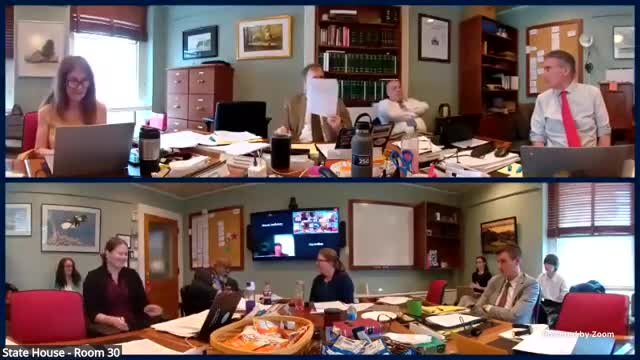Vermont Policy Makers Discuss Criminal History Sealing Procedures for Educators
April 26, 2025 | Judiciary, HOUSE OF REPRESENTATIVES, Committees, Legislative , Vermont
This article was created by AI summarizing key points discussed. AI makes mistakes, so for full details and context, please refer to the video of the full meeting. Please report any errors so we can fix them. Report an error »

In a recent meeting of the Vermont House Judiciary Committee, lawmakers discussed critical updates to licensing policies that aim to enhance communication and accountability among professionals in various fields, particularly in education and health services. The proposed changes are designed to protect both service providers and the Vermonters who rely on their expertise.
One of the key topics was the intersection of licensing for educators and health professionals, including speech pathologists and mental health counselors. Committee members emphasized the importance of clear communication regarding licensing requirements and the implications of criminal history disclosures. They expressed concern that lapses in communication could negatively impact both professionals and the communities they serve.
A significant proposal discussed was the inclusion of a provision in the licensing process that would allow petitioners to identify entities that should be notified when a criminal record is sealed. This change aims to streamline the process and ensure that relevant agencies, such as the Office of Professional Regulation (OPR), receive necessary updates without being overwhelmed by excessive paperwork. The committee believes that empowering petitioners to specify which agencies should be informed will improve efficiency and accountability.
Additionally, the committee addressed the ongoing need for clarity in the licensure of early childhood educators, highlighting a recent report that underscores the importance of understanding the obligations of both the agency and the petitioners. This discussion reflects a broader commitment to ensuring that all parties involved in the licensing process are well-informed and aligned.
As Vermont continues to navigate the complexities of professional licensing, the committee's discussions signal a proactive approach to fostering a supportive environment for individuals seeking to reintegrate into the workforce after past mistakes. By prioritizing communication and accountability, lawmakers aim to create a system that not only protects the public but also encourages the professional growth of Vermonters.
The committee's next steps will involve refining these proposals and ensuring that they align with the state's goals of inclusivity and support for all residents.
One of the key topics was the intersection of licensing for educators and health professionals, including speech pathologists and mental health counselors. Committee members emphasized the importance of clear communication regarding licensing requirements and the implications of criminal history disclosures. They expressed concern that lapses in communication could negatively impact both professionals and the communities they serve.
A significant proposal discussed was the inclusion of a provision in the licensing process that would allow petitioners to identify entities that should be notified when a criminal record is sealed. This change aims to streamline the process and ensure that relevant agencies, such as the Office of Professional Regulation (OPR), receive necessary updates without being overwhelmed by excessive paperwork. The committee believes that empowering petitioners to specify which agencies should be informed will improve efficiency and accountability.
Additionally, the committee addressed the ongoing need for clarity in the licensure of early childhood educators, highlighting a recent report that underscores the importance of understanding the obligations of both the agency and the petitioners. This discussion reflects a broader commitment to ensuring that all parties involved in the licensing process are well-informed and aligned.
As Vermont continues to navigate the complexities of professional licensing, the committee's discussions signal a proactive approach to fostering a supportive environment for individuals seeking to reintegrate into the workforce after past mistakes. By prioritizing communication and accountability, lawmakers aim to create a system that not only protects the public but also encourages the professional growth of Vermonters.
The committee's next steps will involve refining these proposals and ensuring that they align with the state's goals of inclusivity and support for all residents.
View full meeting
This article is based on a recent meeting—watch the full video and explore the complete transcript for deeper insights into the discussion.
View full meeting